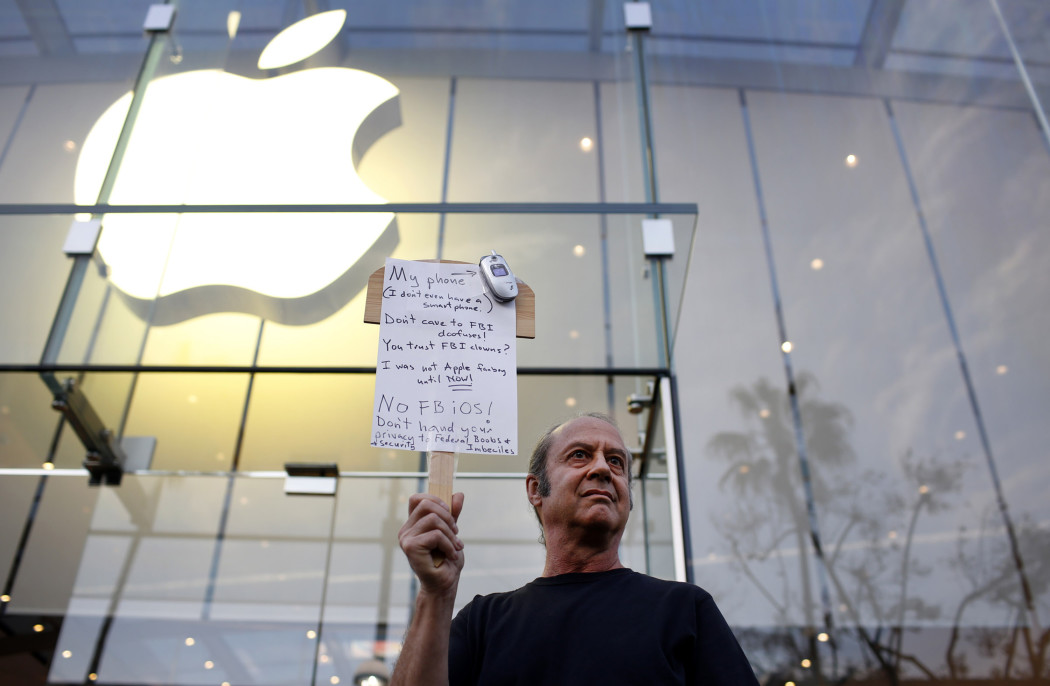Act on Privacy Now
We are about to witness one of the most important legal battles in recent years. Apple is accusing the FBI of overstepping its bounds and threatening privacy rights of millions of Americans. The origin of this contention is an iPhone which was used by one of the suspected San Bernardino shooters, Syed Rizwan Farook. The FBI wants to access the data on the phone for its investigation into the shooting.
The problem is the phone is encrypted with a passcode and there is a possiblity that if the wrong passcode is entered 10 times the phone will lock itself permanantly. This means the FBI’s tool of choice, entering as many random passcodes as fast as possible until one works, is not feasible. The FBI’s reaction was demanding Apple make a special operation system which could be loaded onto the phone and bypass the security features. According to the FBI, the proposed operating system would be limited to only the phone in question and be unusable on other devices. Apple insists this equates to creating a backdoor which can be used to exploit other phones and puts users at risk of extensive privacy loss.
While it might be possible that Apple could create a backdoor for only one device, there is nothing preventing someone from reverse-engineering the special operating system to unlock any other iPhone. Separate from the danger of a backdoor, there is an issue of setting a dangerous precedent.
If Apple submits to the government’s wishes there will be a flood of similar inquiries. Already we are seeing the push for unlocking phones involved with criminal investigations. Manhattan District Attorney Cyrus Vance has come out against Apple because his office has 175 iPhones it can’t access due to encryption. He has already stated that Apple should be required to unlock these phones.
While it is important that law enforcement has the tools to properly investigate crimes, consumers also need strong protection. There needs to be a thorough discussion on the issue of data surveillance and warrants for electronic devices in Congress. We need a code of conduct for both government agencies and tech companies. This is the only way a balance of privacy and investigative abilities can be reached. Without legislation we have to rely on tech companies standing up to government inquests and the subsequent decisions of judges. Leaving these decisions to the courts is inefficient and allows the possibility of mixed rulings, which further muddles the issue. Moreover, it is irresponsible and lazy to leave this issue to the courts instead of tackling it head on through public debate.
Edward Snowden’s NSA leaks helped shine a light on how intrusive government surveillance has become. The post-Snowden era has seen a large increase in public skepticism on the topic of privacy. The big tech companies are now vocal against government intrusion, which is new for many of them. Arguably much of this showmanship is driven by branding rather than true concerns. Unfortunately the outrage from the Snowden leaks is starting to wear off. Despite this, the Pew Research Center found there is still a majority of Americans who believe “there are not adequate limits on the telephone and internet data that the government collects… The majority view that there are not sufficient limits on what data the government gathers is consistent across all demographic groups.”
Such widespread concern presents a prime opportunity for Congress to act. If we do not take advantage of this moment, we risk living in a world of uncertainty with no control over our privacy.
— chris.crook@aggiemail.usu.edu

